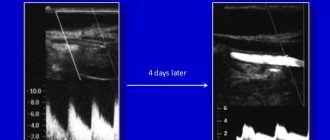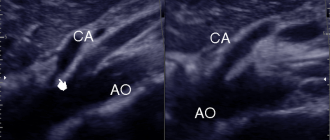 Tips for Getting Ready for an Upper GI Barium Swallow Test: Everything You Need to Know and Do
Tips for Getting Ready for an Upper GI Barium Swallow Test: Everything You Need to Know and Do
An upper gastrointestinal (GI) barium swallow test is a diagnostic procedure that allows doctors to examine the esophagus, stomach, and small intestine using X-rays. It is commonly used to diagnose conditions such as ulcers, tumors, and blockages in the digestive system. This non-invasive procedure involves swallowing a liquid called barium, which coats the lining of the digestive tract and makes it easier to see on X-rays. To ensure accurate results and a smooth procedure, it is important to properly prepare for an upper GI barium swallow test.
Before the test, it is important to inform your healthcare provider about any medications you are taking, as some may need to be temporarily stopped or adjusted. You may also be instructed to fast for a certain period of time before the test, typically for at least 8 hours. This is to ensure that your stomach and intestines are empty, which allows for clearer images during the procedure. Your healthcare provider will provide specific instructions regarding fasting and any necessary medication adjustments.
During the test, you will be asked to wear a hospital gown and remove any jewelry or metal objects that could interfere with the X-ray images. The procedure will typically take place in a radiology department, where a technician will guide you through the process. You will be given a cup or straw to drink the barium solution, which may have a chalky or metallic taste. It is important to follow the technician’s instructions and swallow the barium as directed. After swallowing the barium, X-rays will be taken at different angles to examine the flow and function of your digestive system.
After the test, you may be able to resume your normal activities and diet unless instructed otherwise by your healthcare provider. It is normal to experience some mild constipation or white-colored stools for a day or two after the test, as the barium passes through your system. Drinking plenty of fluids and eating high-fiber foods can help alleviate these symptoms. If you experience any severe or persistent symptoms, such as abdominal pain, difficulty swallowing, or vomiting, it is important to contact your healthcare provider immediately.
Overview of Preparation
Before undergoing an upper GI barium swallow test, it is important to properly prepare to ensure accurate results. The preparation process typically involves fasting for a certain period of time and taking specific medications as instructed by your healthcare provider. Here is an overview of the preparation steps:
| Fasting: | Typically, you will be asked to fast for at least 8 hours before the test. This means you should not consume any food or drink during this time. Fasting helps ensure that your stomach and upper gastrointestinal tract are empty, allowing for better visualization of the organs during the test. |
| Medications: | Your healthcare provider may instruct you to stop taking certain medications before the test. This is important as some medications can interfere with the results. Make sure to inform your healthcare provider about any medications you are currently taking. |
| Special Instructions: | Your healthcare provider may provide you with specific instructions to follow before the test. These instructions may include avoiding chewing gum, smoking, or eating certain foods that can affect the test results. It is important to carefully follow these instructions to ensure accurate and reliable results. |
| Inform the Healthcare Provider: | Before the test, make sure to inform your healthcare provider about any allergies, medical conditions, or previous surgeries you have had. This information is important for your safety and to ensure that the test is conducted properly. |
By following these preparation steps, you can help ensure that your upper GI barium swallow test is successful and provides accurate results. It is important to consult with your healthcare provider for specific instructions tailored to your individual needs.
Why Preparation is Important
Preparing for an upper GI barium swallow test is crucial for accurate results and a successful procedure. Proper preparation ensures that the images taken during the test are clear and detailed, allowing the healthcare professional to accurately diagnose any potential issues with your upper digestive system. Here are a few reasons why preparation is important:
1. Clear Visualization: By following the preparation instructions given by your healthcare provider, you can ensure that your upper digestive system is free from any food particles or debris. This allows the barium solution to coat the lining of your esophagus, stomach, and small intestine evenly. Clear visualization of these structures is essential for accurate diagnosis.
2. Accurate Diagnosis: The purpose of an upper GI barium swallow test is to identify any abnormalities or conditions affecting your upper digestive system, such as ulcers, tumors, or strictures. Proper preparation ensures that the images captured during the test are not obscured by food or other substances, enabling the healthcare professional to make an accurate diagnosis.
3. Patient Comfort: Following the preparation guidelines can help minimize discomfort during the procedure. By avoiding food and drink for the recommended time period before the test, you can prevent any feelings of nausea or bloating that may occur if you were to have a full stomach. Additionally, being properly prepared can help reduce anxiety or stress related to the procedure.
4. Time Efficiency: Properly preparing for the upper GI barium swallow test allows the procedure to be conducted efficiently. If you arrive for the test without following the preparation instructions, it may be necessary to reschedule the procedure, causing delays in your diagnosis and treatment plan.
5. Overall Safety: Adhering to the preparation guidelines ensures your safety during the test. By avoiding specific foods or medications as instructed, you can minimize the risk of adverse reactions or complications during the procedure.
Overall, proper preparation for an upper GI barium swallow test is essential for obtaining accurate results, ensuring patient comfort, and maintaining safety. It is important to carefully follow the instructions provided by your healthcare provider to maximize the effectiveness of the test and promote optimal outcomes.
When to Start Preparing
It is important to start preparing for an upper GI barium swallow test a few days before the scheduled appointment. This will ensure that the test can be conducted smoothly and accurately.
First, it is necessary to inform your healthcare provider about any medications you are taking. Some medications may interfere with the results of the test, so your healthcare provider may ask you to temporarily stop taking them. It is important to follow their instructions carefully.
Additionally, you may be asked to fast for a certain period of time before the test. This means avoiding food and drink, except for water, for a specific number of hours. Fasting helps to empty the stomach and provides a clear view of the upper gastrointestinal tract during the test. Your healthcare provider will provide you with specific instructions on how long you need to fast.
If you have any concerns or questions about the preparation process, it is important to reach out to your healthcare provider for clarification. They will be able to provide you with the necessary information and address any concerns you may have.
Instructions Provided by Healthcare Facility
Before your upper GI barium swallow test, the healthcare facility will provide you with specific instructions to follow. It is important to carefully read and understand these instructions to ensure a successful test.
Fasting: You will be instructed to fast for a certain period of time prior to the test. This usually means not eating or drinking anything for at least 6 hours before the test. It is important to follow these fasting instructions to ensure accurate results.
Medication: You may be instructed to temporarily stop taking certain medications before the test. It is important to follow these instructions to avoid any potential interactions between the medication and the barium used during the test. If you have any questions or concerns about stopping your medication, be sure to consult with your healthcare provider.
Arrival Time: The healthcare facility will provide you with an arrival time for your test. It is important to arrive on time to allow for any necessary paperwork or preparations before the test. Arriving late may result in rescheduling your appointment.
Preparation: You may be instructed to follow specific preparation steps before the test. This may include avoiding certain foods or beverages, taking a laxative, or using an enema to cleanse your digestive system. It is important to follow these preparation instructions to ensure accurate results.
What to Wear: The healthcare facility may provide guidelines on what to wear for the test. It is generally recommended to wear loose, comfortable clothing that can be easily removed and put back on as needed during the test.
Bringing a Companion: Depending on your specific situation, you may be allowed or encouraged to bring a companion with you to the test. This could be someone who can provide support or accompany you during the procedure.
Questions: If you have any questions or concerns about the instructions provided by the healthcare facility, it is important to reach out to them for clarification. They will be able to provide you with the necessary information to ensure a successful test.
By following the instructions provided by the healthcare facility, you can help ensure that your upper GI barium swallow test goes smoothly and provides accurate results. If you have any additional questions, be sure to reach out to your healthcare provider for further guidance.
Diet Restrictions Before the Exam
Before undergoing an upper GI barium swallow test, it is important to follow certain diet restrictions to ensure accurate results. These restrictions are necessary to ensure that the digestive system is empty and the barium can be properly visualized.
Fasting: Typically, you will be instructed not to eat or drink anything after midnight the night before the exam. This includes food, beverages, chewing gum, and smoking. Fasting helps to ensure that there is no food or liquid in your stomach or esophagus during the test.
Medications: You should consult with your healthcare provider about any medications you take regularly. In some cases, you may be instructed to temporarily stop taking certain medications before the exam.
Allergies: Inform your healthcare provider if you have any known allergies, especially to barium or iodine. This is important information to ensure your safety during the procedure.
Hydration: While you are fasting, it is important to stay hydrated. You may be allowed to drink clear liquids up to 2 hours before the exam. Clear liquids can include water, clear broth, or apple juice. However, you should avoid drinking anything red or purple, as these colors can interfere with the test results.
Special Instructions: Your healthcare provider may provide you with specific instructions based on your individual needs. It is important to follow these instructions carefully to ensure a successful exam.
Remember to talk to your healthcare provider about any concerns or questions you have regarding the diet restrictions before the upper GI barium swallow test. Following these restrictions will help ensure accurate and clear results.
Clear Liquid Diet
Before undergoing an upper GI barium swallow test, your doctor may instruct you to follow a clear liquid diet for a certain period of time. This diet consists of consuming only liquids that are transparent and free of any solid particles. The purpose of the clear liquid diet is to ensure that your stomach and intestines are empty and free of any food residue or debris that could interfere with the accuracy of the test results.
During the clear liquid diet, you should avoid consuming any solid foods, dairy products, and beverages that contain pulp or particles. Instead, you can consume a variety of clear liquids such as water, broth, clear fruit juices (without pulp), clear soda, plain gelatin, and popsicles. It is important to stay hydrated during this time and to drink plenty of fluids to prevent dehydration.
While following the clear liquid diet, it is advisable to avoid any beverages that are colored red or purple, as they can interfere with the visibility of the barium solution during the test. Additionally, it is important to refrain from consuming any alcohol or caffeine, as these substances can affect the results of the test.
It is essential to strictly follow the instructions provided by your doctor regarding the duration and specific guidelines of the clear liquid diet. Failure to comply with these instructions may result in the need to reschedule the test, as the presence of solid food particles or debris in the gastrointestinal tract can affect the accuracy of the test results.
Note: The clear liquid diet is a temporary dietary restriction and should not be followed for an extended period of time without medical supervision. If you have any questions or concerns about the clear liquid diet or the upper GI barium swallow test, consult your healthcare provider.
Fasting Period
Before an upper GI barium swallow test, it is important to follow a fasting period. This means you should not eat or drink anything for a certain amount of time before the test. The fasting period allows the doctor to get clear images of your upper gastrointestinal tract.
The length of the fasting period may vary depending on your specific situation and the doctor’s instructions. In general, you will be asked to fast for at least 6 hours before the test. However, your doctor may request a longer fasting period, such as overnight fasting.
During the fasting period, it is important to avoid eating or drinking anything, including water, chewing gum, mints, or medications, unless specifically instructed by your doctor. Even small amounts of food or liquid can interfere with the test results and make it difficult to see the structures in your upper gastrointestinal tract.
If you are taking any medications that need to be taken with food, make sure to discuss this with your doctor before the test. They may provide specific instructions on how to manage your medications during the fasting period.
Remember, following the fasting period is crucial to ensure accurate test results. If you have any questions or concerns about the fasting period or the test itself, don’t hesitate to reach out to your doctor or healthcare provider.
What You Can Eat and Drink
Before your upper GI barium swallow test, it’s important to follow specific guidelines regarding what you can eat and drink. These guidelines help ensure accurate results and a successful test.
Typically, you will need to avoid eating or drinking anything for at least 6 hours before the test. This includes food, water, chewing gum, and mints. It’s important to follow these instructions to prevent any interference with the images taken during the procedure.
If you have been instructed to take any medication, you may be allowed to take it with a small sip of water. However, it’s best to check with your healthcare provider to confirm if this is allowed.
After the test is complete, you will be able to resume your normal eating and drinking habits, unless your healthcare provider advises otherwise. It’s important to stay hydrated and nourished after the test to aid in the recovery process.
Remember to discuss any specific dietary restrictions or concerns with your healthcare provider before the test to ensure a smooth and successful procedure.
What to Avoid
Before your upper GI barium swallow test, there are certain things you should avoid to ensure accurate results:
- Avoid eating or drinking anything for at least 8 hours before the test.
- Avoid smoking or chewing gum before the test, as these activities can interfere with the imaging.
- Avoid taking any medications that could affect the results of the test, unless instructed otherwise by your healthcare provider.
- Avoid wearing any jewelry or metal objects, as they can interfere with the imaging process.
- Avoid wearing tight clothing that may restrict your movement during the test.
- Avoid any strenuous physical activity before the test, as it may affect the positioning of the barium in your digestive system.
Following these guidelines will help ensure that your upper GI barium swallow test provides accurate and reliable results.
Medications to Stop Taking Beforehand
Before undergoing an upper GI barium swallow test, it is important to stop taking certain medications. This is to ensure that the test results are accurate and not affected by the medications you are taking. It is essential to follow your doctor’s instructions regarding medication usage before the test.
Here are some common medications that you may need to stop taking before an upper GI barium swallow test:
| Medication | Reason for Stopping |
| Antacids | Antacids can interfere with the barium coating in your digestive system, making it difficult for the doctor to see the images clearly. |
| Proton pump inhibitors (PPIs) | PPIs reduce the production of stomach acid, which can affect the visibility of the barium coating during the test. |
| Nonsteroidal anti-inflammatory drugs (NSAIDs) | NSAIDs can irritate the lining of the stomach, potentially affecting the results of the test. |
| Aspirin | Aspirin can thin the blood, which may increase the risk of bleeding during the test. |
| Blood thinners (e.g., warfarin, heparin) | These medications can increase the risk of bleeding during the test. |
| Diabetic medications (e.g., insulin, metformin) | These medications can affect blood sugar levels, which may impact the test results. |
It is important to discuss your medication usage with your doctor before the test. They will provide specific instructions on which medications to stop taking and for how long. Make sure to follow these instructions closely to ensure accurate test results.
Antacids and Acid Reducers
Antacids and acid reducers are medications commonly used to help reduce the amount of acid in the stomach. They can be helpful before an upper GI barium swallow test to ensure that the stomach is not overly acidic, which could interfere with the results of the test.
Antacids work by neutralizing the acid in the stomach. They can provide quick relief from symptoms of heartburn and indigestion. Some common antacids include Tums, Rolaids, and Maalox.
Acid reducers, on the other hand, work by reducing the production of acid in the stomach. They are often used to treat conditions such as gastroesophageal reflux disease (GERD) and peptic ulcers. Common acid reducers include proton pump inhibitors (PPIs) like omeprazole (Prilosec) and H2 blockers like ranitidine (Zantac).
Before the upper GI barium swallow test, your doctor may advise you to take antacids or acid reducers to help prepare your stomach. It is important to follow your doctor’s instructions and take the medication as directed. Be sure to inform your doctor of any medications or supplements you are currently taking, as they may interact with antacids or acid reducers.
| Antacids | Acid Reducers |
| Tums | Omeprazole (Prilosec) |
| Rolaids | Ranitidine (Zantac) |
| Maalox | – |
It is important to note that while antacids and acid reducers can help reduce stomach acid, they should not be taken excessively or for prolonged periods without medical supervision. If you have any concerns or questions about taking antacids or acid reducers before your upper GI barium swallow test, be sure to consult with your doctor.
Metformin and Other Oral Medications
If you are taking metformin or any other oral medications for diabetes, it is important to inform your healthcare provider before undergoing an upper GI barium swallow test. These medications may need to be adjusted or temporarily stopped before the test to ensure accurate results.
Metformin is a commonly prescribed medication for the management of type 2 diabetes. It helps to control blood sugar levels by improving the body’s response to insulin. However, metformin can affect the absorption of barium, which is used during the test to highlight the digestive tract. This can interfere with the results and make it difficult for the healthcare provider to interpret the images.
Your healthcare provider will provide specific instructions on when to stop taking metformin before the test. Typically, you may be advised to stop taking the medication for 48 hours before the test. It is important to follow these instructions carefully to ensure accurate results.
In addition to metformin, there are other oral medications that may need to be adjusted or temporarily stopped before an upper GI barium swallow test. These may include medications such as sulfonylureas, thiazolidinediones, and meglitinides, which are also used for the management of diabetes.
It is important to have a discussion with your healthcare provider about any oral medications you are taking before undergoing the test. Your healthcare provider will be able to provide specific instructions based on your individual situation and ensure that you are properly prepared for the test.
| Medication | Instructions |
| Metformin | Typically stopped for 48 hours before the test |
| Sulfonylureas | May need to be adjusted or temporarily stopped |
| Thiazolidinediones | May need to be adjusted or temporarily stopped |
| Meglitinides | May need to be adjusted or temporarily stopped |
Ask Doctor About Other Prescription Drugs
Before undergoing an upper GI barium swallow test, it is important to inform your doctor about any other prescription drugs you may be taking. Certain medications can interfere with the results of the test or have adverse effects when combined with the contrast material used during the procedure.
Make sure to provide your doctor with a comprehensive list of all the medications you are currently taking, including any over-the-counter drugs, vitamins, or supplements. This will help your doctor determine if any adjustments need to be made to your medication regimen prior to the test.
Additionally, if you have any concerns or questions about how your current medications may affect the test, don’t hesitate to ask your doctor for clarification. They will be able to provide you with the necessary information and address any potential issues.
Remember, it is always better to be safe and informed when it comes to medical procedures. By discussing your prescription drugs with your doctor beforehand, you can ensure that your upper GI barium swallow test is accurate and safe.
Other Tips to Prepare
In addition to following the specific instructions provided by your healthcare provider, there are some general tips that can help you prepare for an upper GI barium swallow test:
- Discuss any concerns or questions you may have with your healthcare provider before the test.
- Inform your healthcare provider about any medications you are taking, including over-the-counter medications and supplements.
- Wear comfortable clothing that is easy to remove, as you may be asked to change into a hospital gown.
- Bring a list of any allergies or previous reactions you have had to contrast materials or medications.
- Plan to arrive at the testing facility early to allow time for check-in procedures.
- Avoid eating or drinking anything for a certain period of time before the test, as instructed by your healthcare provider.
- Make arrangements for someone to drive you home after the test, as the sedation or anesthesia used during the procedure may impair your ability to drive.
By following these tips and the specific instructions provided by your healthcare provider, you can ensure that you are well-prepared for your upper GI barium swallow test.
Transportation Arrangements
Before your upper GI barium swallow test, it’s important to make transportation arrangements, as you may not be able to drive yourself home afterwards. The effects of the barium solution used during the test can cause drowsiness and impair your ability to operate a vehicle safely.
If you have a friend or family member who can accompany you to the appointment, that would be ideal. They can drive you to the imaging center and then take you home afterwards. Alternatively, you can arrange for a taxi or rideshare service to pick you up and drop you off. Just make sure to schedule your transportation in advance to ensure you have a ride available.
If you don’t have anyone who can provide transportation for you, consider contacting your healthcare provider or the imaging center where your test will be conducted. They may be able to offer suggestions or assistance in arranging transportation for you.
Remember, it’s important to have a plan in place for getting to and from your upper GI barium swallow test. By making transportation arrangements ahead of time, you can ensure a smooth and stress-free experience.
What to Bring With You
When you go for an upper GI barium swallow test, it’s important to bring a few items with you to ensure a smooth and comfortable experience. Here are some things you should remember to bring:
| 1. Referral and insurance information | Make sure to bring your referral form from your doctor, as well as your insurance information. This will help the healthcare facility to process your appointment and bill your insurance correctly. |
| 2. Comfortable clothing | Wear loose, comfortable clothing that allows easy access to your abdomen. This will make it easier for the healthcare provider to position you correctly during the test. |
| 3. List of medications | Bring a list of all the medications you are currently taking, including any over-the-counter drugs and supplements. This will help the healthcare provider to ensure there are no interactions or contraindications with the barium swallow test. |
| 4. Snacks and water | The test may take several hours, so it’s a good idea to bring some snacks and a bottle of water to keep yourself nourished and hydrated during the waiting times. |
| 5. Entertainment | During the waiting times, it can be helpful to have some entertainment to pass the time. Bring a book, magazine, or any other form of entertainment that you enjoy. |
| 6. Support person | If you feel more comfortable having someone accompany you, bring a support person with you to the test. They can provide emotional support and help you navigate the process. |
By being prepared and having everything you need with you, you can make your upper GI barium swallow test experience more comfortable and stress-free.
Arriving Early for Test
When preparing for an upper GI barium swallow test, it is important to arrive early for your appointment. Arriving early allows you to complete any necessary paperwork and provides you with time to relax before the test begins.
Before your appointment, make sure to confirm the location and time of the test. Plan your journey accordingly to ensure you arrive on time. It is also a good idea to wear comfortable clothing that can easily be removed or adjusted during the test.
Arriving early gives you the opportunity to ask any questions or address any concerns you may have with the medical staff. They can provide you with any additional instructions or information you may need before the test.
Additionally, arriving early allows you to familiarize yourself with the testing facility and get a sense of the environment. This can help to ease any anxiety or nerves you may be feeling.
Arriving early for your upper GI barium swallow test is essential for a smooth and stress-free experience. Take the time to prepare in advance, confirm your appointment details, and allow yourself plenty of time to relax before the test begins.
Questions to Ask Beforehand
Before undergoing an upper GI barium swallow test, it’s important to gather all the necessary information to ensure a smooth and successful procedure. Here are some questions you should ask your healthcare provider beforehand:
| 1. What is the purpose of the test? |
| Understanding the purpose of the test will help you mentally prepare and know what to expect during the procedure. |
| 2. How should I prepare for the test? |
| Your healthcare provider will provide specific instructions on how to prepare for the upper GI barium swallow test. It’s important to follow these instructions carefully to ensure accurate results. |
| 3. Are there any dietary restrictions before the test? |
| You may be required to follow a special diet or avoid certain foods and drinks before the test. It’s important to clarify any dietary restrictions to ensure accurate test results. |
| 4. Can I take my medications before the test? |
| Some medications may interfere with the test results. It’s important to ask your healthcare provider if you should continue taking your medications or if you need to temporarily stop them. |
| 5. How long will the test take? |
| Knowing the duration of the test will help you plan your day accordingly and make any necessary arrangements. |
| 6. Are there any potential risks or side effects? |
| It’s important to understand the potential risks or side effects associated with the upper GI barium swallow test. Your healthcare provider can provide you with this information and address any concerns you may have. |
| 7. When will I receive the test results? |
| Ask your healthcare provider when you can expect to receive the test results and how they will be communicated to you. |
By asking these questions beforehand, you can be better prepared for your upper GI barium swallow test and ensure a successful and comfortable experience.
Special Instructions for Certain Patients
For patients with diabetes:
| 1. | Do not take your oral diabetes medications on the day of the test. |
| 2. | Bring your insulin with you to the test and inform the technologist about your condition. |
For patients with kidney problems:
| 1. | Inform your doctor about your kidney condition prior to the test. |
| 2. | Drink plenty of fluids after the test to help flush out the contrast material from your system. |
For pregnant patients:
| 1. | Inform your doctor about your pregnancy prior to the test. |
| 2. | Consider discussing the risks and benefits of the test with your doctor. |
For patients with swallowing difficulties:
| 1. | Inform your doctor about your swallowing difficulties prior to the test. |
| 2. | Discuss any concerns or questions with your doctor beforehand. |
Pregnancy Precautions
If you are pregnant or think you may be pregnant, it is important to inform your healthcare provider before scheduling or undergoing an upper GI barium swallow test. Although there is no conclusive evidence of harm to the fetus during this procedure, it is always better to err on the side of caution.
Your healthcare provider will assess the potential risks and benefits of the test in relation to your pregnancy. They may recommend alternative imaging tests or postpone the upper GI barium swallow test until after your pregnancy, if possible.
If the test is deemed necessary during pregnancy, your healthcare provider will take steps to minimize any potential risks. This may include using a lower dose of barium contrast material, shielding your abdomen with lead aprons, and ensuring that the test is performed as quickly as possible to limit exposure.
It is important to discuss any concerns or questions you may have with your healthcare provider. They will be able to provide you with the necessary information and guidance to make an informed decision regarding the upper GI barium swallow test during pregnancy.
| Precautions: | Recommendations: |
| Inform your healthcare provider | Discuss potential risks and benefits |
| Consider alternative tests or postpone | Minimize risks if necessary |
| Lower dose of barium contrast material | Shield abdomen with lead aprons |
| Quickly perform the test | Address concerns with healthcare provider |
Contrast Allergies and Medical Conditions
Before undergoing an upper GI barium swallow test, it is important to inform your healthcare provider about any contrast allergies or medical conditions you may have. This information is crucial in ensuring your safety and the accuracy of the test results.
If you have a known allergy to contrast material, such as iodine or barium sulfate, it is important to let your healthcare provider know. They may recommend alternative imaging tests or take precautions to minimize the risk of an allergic reaction. It is also important to inform your healthcare provider if you have a history of allergic reactions to other substances, as this may increase your risk of a contrast allergy.
Additionally, certain medical conditions can affect the safety or interpretation of the upper GI barium swallow test. For example, if you have a history of kidney problems or diabetes, your healthcare provider may need to adjust the dosage or timing of the test to minimize the risk of complications. Similarly, if you are pregnant or suspect you may be pregnant, it is important to let your healthcare provider know, as the test may need to be postponed or modified to protect the developing fetus.
By providing accurate information about your contrast allergies and medical conditions, you can help ensure that the upper GI barium swallow test is performed safely and effectively. Your healthcare provider will work with you to address any concerns or considerations specific to your situation.
Recent Abdominal Surgery
If you have recently undergone abdominal surgery, it is important to inform your doctor before scheduling an upper GI barium swallow test. The surgical procedure may affect your ability to swallow properly or cause discomfort during the test.
Your doctor will need to assess your post-surgery condition and determine whether it is safe for you to undergo the test. They may recommend postponing the test until you have fully recovered from the surgery or suggest alternative imaging methods.
It is crucial to provide your doctor with detailed information about your surgery, including the date of the procedure, the type of surgery performed, and any complications or ongoing symptoms you may be experiencing. This information will help your doctor make an informed decision about the timing and appropriateness of the upper GI barium swallow test.
Additionally, if you have any concerns or questions about how your recent abdominal surgery may impact the test, do not hesitate to discuss them with your doctor. They are there to address your concerns and ensure your safety and comfort throughout the diagnostic process.
Getting Ready Morning of the Exam
The morning of your upper GI barium swallow test is an important time to prepare. Follow these steps to ensure a successful exam:
1. Follow any pre-exam instructions provided by your healthcare provider. This may include fasting or avoiding certain medications.
2. Dress comfortably in loose-fitting clothing. You may be asked to change into a hospital gown for the exam.
3. Arrive at the testing facility on time. Give yourself enough time to check in and complete any necessary paperwork.
4. Bring any required documents or identification, such as your driver’s license or insurance card.
5. Remove any jewelry or metal objects that may interfere with the exam.
6. Communicate any concerns or questions you may have to the healthcare staff. They are there to assist you and ensure your comfort during the exam.
7. Follow any additional instructions given to you by the healthcare staff, such as drinking a contrast material or taking specific medications.
By following these steps, you can help ensure that you are prepared and ready for your upper GI barium swallow test.
Review Fasting Instructions
Before undergoing an upper GI barium swallow test, it is important to review the fasting instructions provided by your healthcare provider. These instructions are designed to ensure that your stomach is empty during the procedure, allowing for clear and accurate imaging.
Typically, you will be instructed to fast for a certain period of time before the test. This may involve refraining from eating or drinking anything, including water, for a specific number of hours prior to the procedure. It is important to follow these instructions closely to avoid any complications or inaccurate test results.
Additionally, it may be necessary to avoid certain medications or supplements prior to the test. Some medications can affect the results of the barium swallow, so it is important to inform your healthcare provider of any medications you are taking. They will provide specific instructions regarding which medications to avoid and for how long.
If you have any questions or concerns about the fasting instructions, it is important to reach out to your healthcare provider for clarification. They can provide guidance and address any concerns you may have.
Take Allowed Meds with Sips of Water
Before your upper GI barium swallow test, it is important to follow any instructions given by your healthcare provider regarding medications. In most cases, you will be allowed to take your regular medications with sips of water on the day of the test.
Make sure to inform your healthcare provider about all the medications you are currently taking, including prescription drugs, over-the-counter medications, and supplements. They will advise you on which medications you should continue taking and which ones you should hold off on before the test.
On the day of the test, take your medications at the appropriate time, following the prescribed dosage. Use only a small amount of water to swallow the pills, as large amounts of liquid may interfere with the test results. Avoid taking any medications that are not approved by your healthcare provider prior to the test.
If you have any concerns or questions about taking your medications before the upper GI barium swallow test, be sure to reach out to your healthcare provider for clarification. They will provide you with the necessary guidance to ensure a successful and accurate test.
Brushing Teeth and Oral Hygiene
It is important to maintain good oral hygiene before an upper GI barium swallow test. This includes brushing your teeth regularly and properly. Brushing your teeth helps remove plaque and bacteria that can cause tooth decay and gum disease.
Here are some tips for brushing your teeth effectively:
- Brush your teeth at least twice a day, for two minutes each time.
- Use a toothbrush with soft bristles to avoid damaging your gums.
- Hold the toothbrush at a 45-degree angle to your gums.
- Use gentle, circular motions to brush the outer and inner surfaces of your teeth.
- Brush your tongue to remove bacteria and freshen your breath.
- Replace your toothbrush every three to four months, or sooner if the bristles become frayed.
In addition to brushing your teeth, it is also important to floss daily and use mouthwash to further clean your mouth and remove any remaining bacteria. Maintaining good oral hygiene not only benefits your overall dental health but also helps ensure accurate results during the upper GI barium swallow test.
Comfortable Clothing
When preparing for an upper GI barium swallow test, it’s important to wear comfortable clothing. You will be asked to change into a hospital gown, but it’s a good idea to wear loose-fitting clothes that are easy to take off and put on. This will make the process more comfortable and convenient for you.
Choose clothing that is made of lightweight and breathable materials, such as cotton or linen. Avoid wearing tight or restrictive clothing, as it may make you feel uncomfortable during the test. Opt for loose-fitting pants or a skirt, and a comfortable top that allows easy access to your chest and abdomen.
Additionally, wearing slip-on shoes or sandals can make it easier for you to remove your shoes before the test. This will save you time and effort, as you won’t need to untie or unlace your shoes.
Remember, the upper GI barium swallow test may take some time, so it’s important to be as comfortable as possible during the procedure. By wearing comfortable clothing, you can help ensure a more pleasant experience.
Checking in at Facility
When you arrive at the facility for your upper GI barium swallow test, you will need to check in at the reception desk. Be sure to bring your identification and any necessary paperwork or insurance information.
The receptionist will ask you to fill out some forms, including a medical history questionnaire. It is important to provide accurate and complete information to ensure that you receive the best possible care during your test.
After checking in, you may need to wait in the waiting area until a staff member calls you in for your test. This waiting time can vary depending on the facility and how busy they are, so it’s a good idea to bring a book or some other form of entertainment to pass the time.
Once it’s your turn, a healthcare professional will escort you to the examination room where the test will be performed. They will explain the procedure to you and answer any questions you may have. If you have any concerns or special needs, be sure to communicate them at this point.
Before the test begins, you may be asked to change into a hospital gown and remove any jewelry or metal objects that could interfere with the X-rays. It’s also important to let the healthcare professional know if you have any allergies, particularly to barium or contrast dye.
Overall, checking in at the facility is a relatively simple process. Just make sure to arrive on time, bring all necessary paperwork, and communicate any concerns or special needs to the healthcare professionals. This will help ensure a smooth and successful upper GI barium swallow test.
Q&A:
What is an upper GI barium swallow test?
An upper GI barium swallow test is a medical procedure used to examine the upper gastrointestinal tract. It involves drinking a barium solution and then taking X-ray images to visualize the esophagus, stomach, and small intestine.
Why might I need to have an upper GI barium swallow test?
An upper GI barium swallow test may be recommended by your doctor if you are experiencing symptoms such as difficulty swallowing, heartburn, abdominal pain, or unexplained weight loss. It can help diagnose conditions such as gastroesophageal reflux disease (GERD), ulcers, tumors, or blockages in the digestive system.
How do I prepare for an upper GI barium swallow test?
To prepare for an upper GI barium swallow test, you will likely be instructed to fast for a certain period of time before the test. This usually means not eating or drinking anything for at least 8 hours prior to the procedure. Your doctor will provide specific instructions on what you can and cannot consume before the test.
What happens during an upper GI barium swallow test?
During an upper GI barium swallow test, you will be asked to drink a barium solution, which may have a chalky taste. The radiologist will take X-ray images as the barium moves through your upper gastrointestinal tract. You may be asked to change positions or swallow additional barium to get clear images of different areas. The test usually takes about 30 minutes to an hour.
Are there any risks or side effects associated with an upper GI barium swallow test?
An upper GI barium swallow test is generally considered safe and complications are rare. However, some individuals may experience constipation or mild allergic reactions to the barium solution. It is important to inform your doctor if you are pregnant or have any known allergies before undergoing the test.
What is an upper GI barium swallow test?
An upper GI barium swallow test is a diagnostic procedure that uses X-rays to examine the upper gastrointestinal (GI) tract. It involves drinking a liquid called barium sulfate, which coats the lining of the esophagus, stomach, and small intestine, and makes them more visible on X-ray images.
Why is an upper GI barium swallow test done?
An upper GI barium swallow test is done to help diagnose conditions affecting the upper GI tract, such as gastroesophageal reflux disease (GERD), hiatal hernia, ulcers, tumors, and narrowing of the esophagus. It can also be used to evaluate the function and movement of the esophagus and stomach.






